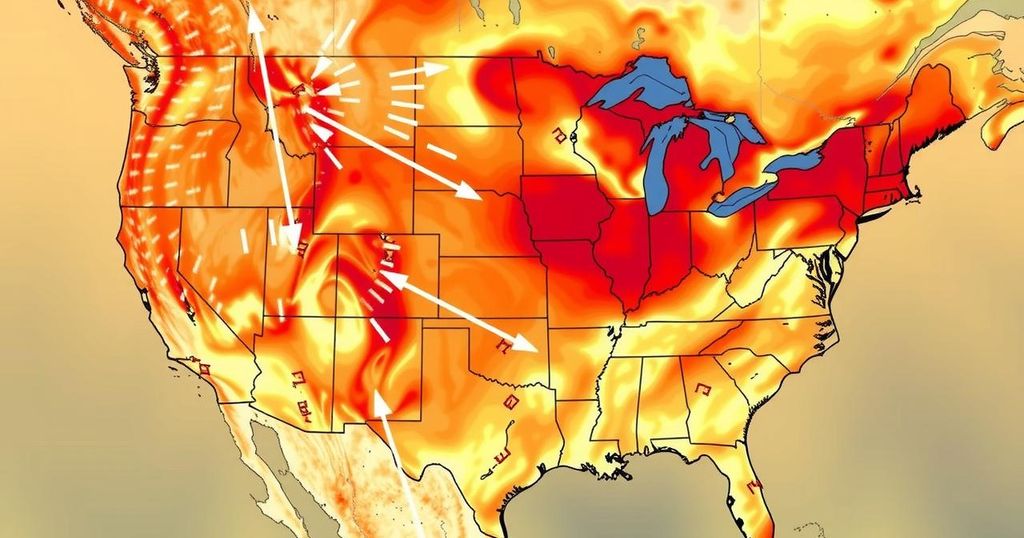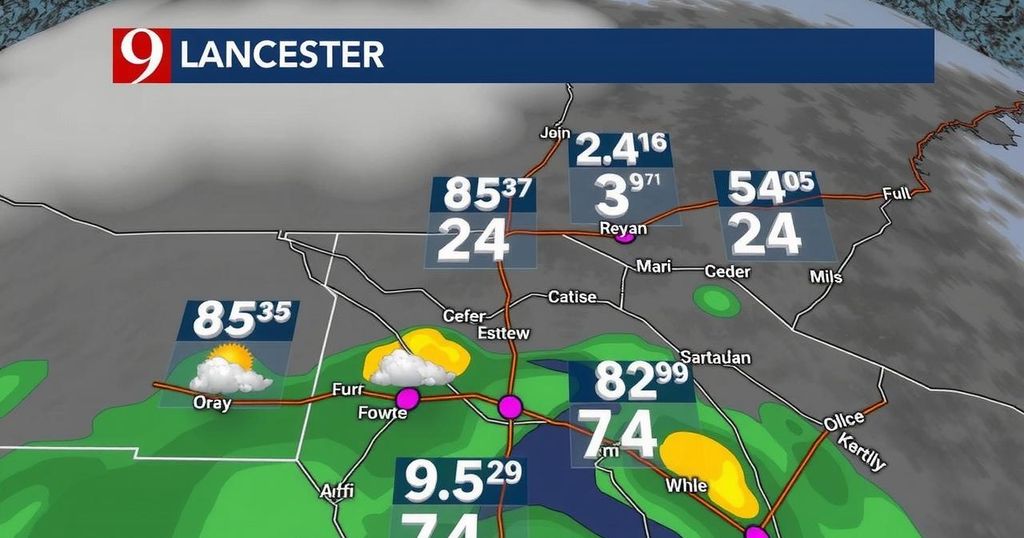Record-Breaking Temperatures Forecast for 2024 Following Second-Warmest November
The report from Copernicus indicates that November 2024 was the second warmest on record, suggesting that the year is likely to become the hottest ever. Global temperatures averaged 14.10°C, surpassing previous records. This significant temperature rise is attributed to human-caused climate change and El Niño, raising urgent calls for heightened climate action to address the serious implications for ecosystems and agriculture.
In 2024, the world has recorded its second-warmest November, second only to 2023, suggesting that the upcoming year is poised to become the hottest on record. This alarming trend is detailed in a report by the European climate service, Copernicus, which highlights that the global average temperature in November reached 14.10°C (57.38°F), significantly higher than prior years. Factors such as human-induced climate change and ongoing climatic anomalies like El Niño are driving this increase, which has implications for ecosystems and agriculture worldwide.
As the year progresses, the global temperature has averaged 0.14°C (0.32°F) above the same period in 2023, indicating a concerning trajectory. Climate records show that 2023 was notably hot, characterized by extreme weather patterns, including lengthy heat waves in regions such as Phoenix, Arizona. Jennifer Francis of the Woodwell Climate Research Center remarked, “Like 2023, it beat out previous Novembers by a large margin.” The report emphasizes that 2024 may exceed the Paris Agreement’s thresholds for limiting global warming, underscoring the urgent need for substantial climate action.
The Copernicus report emphasizes that this year marks a crucial increase in global temperatures, likely surpassing 1.5°C (2.7°F) above pre-industrial levels, a target previously established to mitigate climate impacts. Samantha Burgess, Deputy Director of Copernicus, stated, “that does not mean that the Paris Agreement has been breached, but it does mean ambitious climate action is more urgent than ever.” This year’s higher temperatures stem from a combination of factors, including reduced sea ice in Antarctica and the warming effects of the oceans, which absorb a significant amount of the heat generated by greenhouse gases.
The scientific community remains astounded by the sustained high temperatures despite the absence of the cooling La Niña, which typically follows El Niño cycles. Jonathan Overpeck, a climate scientist at the University of Michigan, articulates the uncertainty surrounding current climatic conditions, noting, “this could be contributing to the acceleration of global warming.” The findings underline the pressing consequences of climate change, not only for biodiversity and ecosystems but also for agricultural practices due to threats to essential pollinators.
As 2024 approaches, the realities of climate change demand immediate and dedicated global efforts to mitigate its most severe impacts. The combination of continuous warming temperatures, declining biodiversity, and changes in agricultural dynamics signals an urgent call for comprehensive climate strategies to avert further disastrous consequences.
The report from Copernicus reveals a concerning trend regarding global temperatures, as November 2024 ranks as the second warmest in recorded history, trailing only behind 2023. This increase is attributed to ongoing climate change driven primarily by human activities, particularly the burning of fossil fuels. The sustained rise in temperatures poses dire risks not only to humans but also to various ecosystems worldwide, emphasizing the necessity for urgent climate actions. The alarming statistics surrounding November’s temperatures indicate a potential breach of critical thresholds established in international climate agreements, necessitating immediate global responses to combat these trends.
The evidence presented in the Copernicus report underscores a significant increase in global average temperatures, making world records likely to be shattered in 2024. With the potential for temperatures to exceed 1.5°C above pre-industrial levels, the report highlights the pressing need for robust climate action to prevent further environmental degradation. Scientists warn against the climate crisis’s accelerating pace, which threatens both human societies and natural ecosystems. Thus, immediate and sustained efforts are crucial in mitigating the potentially catastrophic consequences of climate change.
Original Source: apnews.com




Post Comment